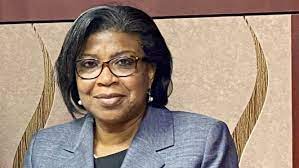The Debt Management Office (DMO) has reported that Nigeria’s total public debt stock increased to N42.84 trillion as of June, up from the N41.60 trillion it stood at the end of March this year.
The latest figures represent an increase of N1.24 trillion in three months and reflected the challenge facing the fiscal authorities to generate more revenue over the past months.
A statement hoisted on the DMO’s website on the debt profile reads in part: “The Total Public Debt Stock, representing the Domestic and External Debt Stocks of the Federal Government of Nigeria, the 36 State Governments and the Federal Capital Territory, was N42.84tn ($103.31bn) as at June 30, 2022. The comparative figure for March 30, 2022, was N41.60tn ($100.07bn).”
According to the Office, the Federal Government was unable to secure any foreign loans in the second quarter of 2022, thereby keeping the nation’s external debt stock at N16.61 trillion ($40.06bn) in the six-month period ended June 2022.
It further disclosed that 58 percent of external debt was concessional and semi-concessional loans from multilateral lenders such as the World Bank, International Monetary Fund, Afrexim, African Development Bank and bilateral lenders, including Germany, China, Japan, India and France.
The DMO stated that domestic debt rose to N26.23 trillion ($63.24bn) due to new borrowings by the government to part-finance the deficit in 2022 Appropriation {Repeal and Enactment) Act, as well as new borrowings by state governments and the FCT.
On Nigeria’s debt to GDP ratio, the Office stated that as of June 30, the total public debt to GDP was 23.06 percent compared to the ratio of 23.27 percent as of the end of March this year.
As most analysts have pointed out in the past months, the Office admitted that the debt service-to-revenue ratio remained high, thereby requiring more efforts to generate revenue to bridge the widening yearly budget deficit gaps.






